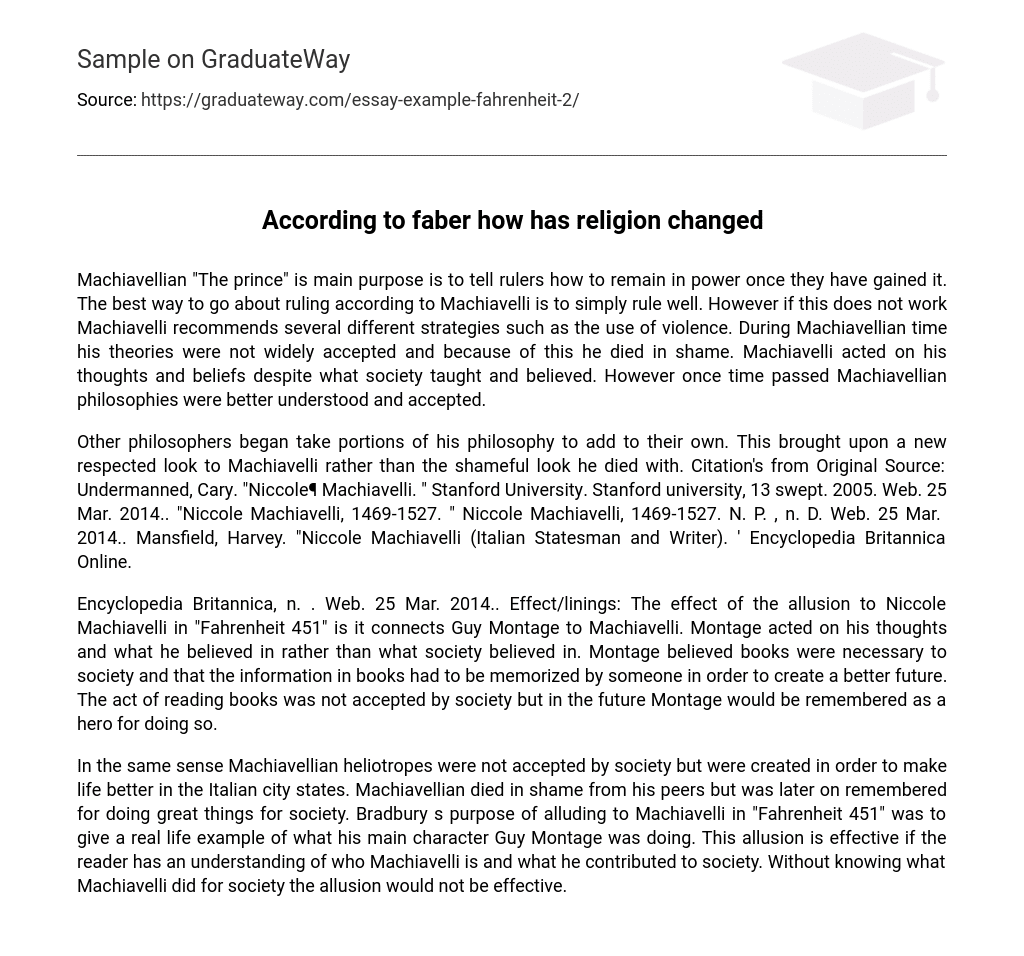The primary aim of Machiavelli’s “The Prince” is to provide rulers with guidance on how to preserve their power. Machiavelli asserts that effective leadership is the most efficient method of governing. Nonetheless, if this approach proves unsuccessful, Machiavelli suggests employing diverse strategies, including violence. During his time, there was limited acceptance of Machiavelli’s theories, leading to his disgraceful death. Nevertheless, he remained unwavering in his convictions and disregarded societal teachings. Gradually though, individuals began to understand and adopt Machiavellian philosophies.
Other philosophers began incorporating portions of Machiavelli’s philosophy into their own, bringing a newfound respect to his ideas that were previously looked upon shamefully. Citation’s from Original Source: Undermanned, Cary. “Niccole¶ Machiavelli.” Stanford University. Stanford university, 13 swept. 2005. Web. 25 Mar. 2014.. “Niccole Machiavelli, 1469-1527.” Niccole Machiavelli, 1469-1527. N. P., n. D. Web. 25 Mar. 2014.. Mansfield, Harvey. “Niccole Machiavelli (Italian Statesman and Writer).” Encyclopedia Britannica Online.
According to Encyclopedia Britannica (n.d.), the reference to Niccole Machiavelli in “Fahrenheit 451” establishes a connection between Guy Montage and Machiavelli. Montage, unlike society’s beliefs, acted based on his own thoughts and convictions. He firmly believed that books were crucial for society and that their information should be memorized to pave the path towards a brighter future. Despite society’s disapproval of reading books, Montage would ultimately be celebrated as a hero due to his actions.
“Fahrenheit 451” by Bradbury contains a reference to Machiavelli, which is used to demonstrate the actions of the protagonist, Guy Montage. Similar to how Machiavelli’s ideas were initially rejected but eventually acknowledged for their positive impact on Italian city states, Montage experiences disapproval from society but ultimately leaves a significant influence. Having an understanding of Machiavelli and his contributions is essential in fully grasping the effectiveness of this allusion.





